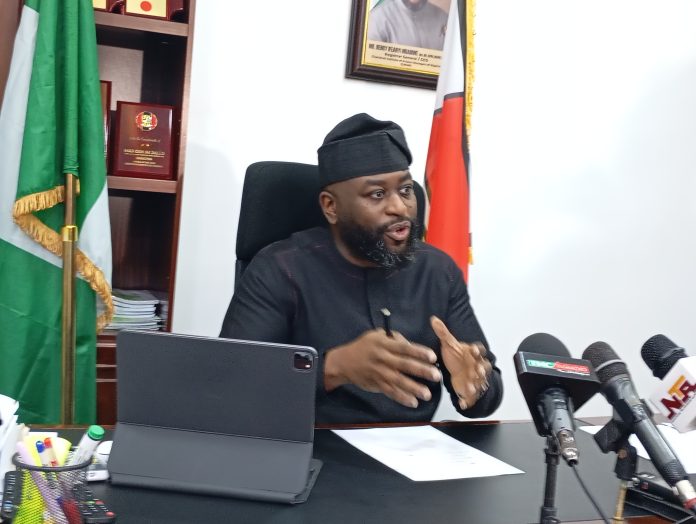The Chartered Institute of Project Managers of Nigeria, CIPMN, has reaffirmed its determination to commence strict enforcement of its licensing law, warning that individuals and organizations practicing project management without CIPMN authorization face prosecution and possible two-year jail terms as stipulated by law.
Registrar-General of CIPMN, Mr. Henry Mbadiwe, stated this during a press briefing on Thursday in Abuja to mark the 2025 International Project Management Day, with the theme, “The Power of Thrill: Project Leadership and Agile,”
Mbadiwe emphasized that the CIPMN Act No. 3 of 2018 empowers the Institute to regulate, certify, and monitor all project management practices across Nigeria, similar to how the Medical and Dental Council licenses doctors.
“Anyone practicing project management in Nigeria without a CIPMN license commits an offense punishable by two years imprisonment or an option of fine.
“Equally, any organization that hires an unlicensed project manager becomes complicit under the same law,” he stated.
The CIPMN boss clarified that the Institute’s enforcement model targets both individuals and their employers, noting that the intent is not punitive but corrective as to strengthen accountability and ensure proper project delivery.
“We will not just walk into institutions and start closing projects. We will first identify who managed those projects, confirm if they are licensed, and if not, both the project manager and the employer would be liable under the Act,” he explained.
Mbadiwe disclosed that CIPMN has gone fully digital, creating a paperless registration and licensing system that allows instant online verification of certified project managers.
“Every license and certificate we issue carries a QR code. Anyone can scan and confirm its authenticity on our website in seconds.
“Some regulatory bodies have operated for 30 years without such a verification portal. We already built ours within two years because transparency is non-negotiable,” he said.
He explained that the Institute has also designed a Customer Relationship Management system to track members’ activities and monitor project outcomes nationwide.
On why enforcement has not commenced fully, Mbadiwe cited difficulty in recruiting a competent Head of Enforcement, which has slowed down implementation.
“I’ll be honest, we’ve struggled to find the right person. Many people send CVs that don’t fit the role. I’m particular about getting a square peg for a square hole. Once that position is filled, enforcement will begin immediately because the systems are already in place,” he said.
According to him, despite challenges, the Institute has recorded major institutional milestones, including developing a 12-module national curriculum for project management licensing and a university-level curriculum for degree programmes in project management.
Mbadiwe noted that the Institute operates independently without federal subvention, relying solely on internally generated revenue and membership dues.
“We’ve grown to 40 staff without receiving a kobo from government. We’re not asking for yearly appropriations because we must remain independent.
“However, a one-time grant to expand our reach across the six geopolitical zones would help accelerate our national rollout,” he said.
He revealed that CIPMN currently has about 1,200 licensed professional members and an additional 3,600 associated members, including accredited trainers.
The Registrar-General reiterated that CIPMN is determined to hold project managers to higher standards of performance and value delivery.
“Not every completed project is a successful project. Some projects get finished but waste enormous public resources. Our focus is value, not just completion,” he stated.
He emphasized that project management must embrace agile processes to allow flexibility in execution, warning that rigid bureaucracies often cause failure and cost escalation.
Mbadiwe also called for renewed national commitment to professionalism, accountability, and sustainability in project execution across all sectors of the economy.
He stressed that effective project management remains central to Nigeria’s development.
“This celebration challenges institutions, professionals, and policymakers to build a balance between structure and flexibility. It reminds us that behind every successful development initiative is a well-managed project, whether in infrastructure, education, healthcare, or technology,” he stated.
The International Project Management Day is celebrated globally on the first Thursday of November.



